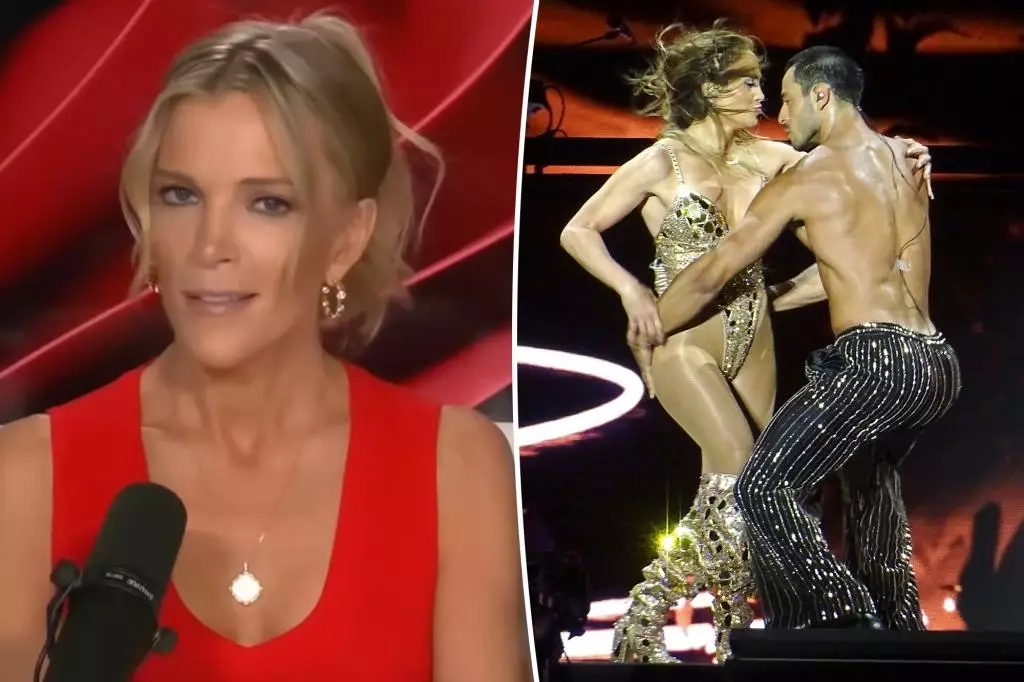The recent remarks by Megyn Kelly about Jennifer Lopez highlight a larger pattern within public discourse—where intense critique often borders on sensationalism. Kelly’s comment, describing Lopez as akin to “a soft porn star,” exemplifies how critique can sometimes devolve into unfair characterizations rooted in personal judgment rather than substantive analysis. While Kelly positions herself as a candid commentator unafraid to speak her mind, her language reveals a tendency to prioritize shock value over nuanced discussion. This approach raises critical questions about journalistic integrity: Does relentless honesty mean abandoning respect and fairness? Excessive critique, especially when rooted in personal biases, risks overshadowing meaningful conversations with sensationalism.
The core issue lies in the ethical boundaries of critique. Is it justified to dismiss a performer’s artistry because her stage presence is provocative? Or does such commentary reflect a desire for moral superiority, disguising superficial judgments as honest opinions? Kelly’s analogy to “soft porn,” intertwined with sarcastic commentary, seems more targeted at eliciting reactions than fostering enlightenment. This approach may garner engagement, but at what cost to civility and understanding? Given the influence such public figures wield, critics must be vigilant about the responsibility carried—balancing honesty with respect, critique with compassion.
Society’s Tolerance for Open Criticism Versus the Danger of Personal Attacks
The polarized reactions to Kelly’s comments demonstrate a societal struggle with accepting blunt honesty. While some followers praise her unapologetic candor, others perceive her remarks as mean-spirited and unconstructive. This dichotomy underscores a broader societal debate: Should critics be entirely free to express their opinions without restraint, or should there be limits to prevent harm? Kelly’s critics argue that her posts veer into personal insult, degrading the dignity of the individual being scrutinized. Fans of Lopez, on the other hand, defend her right to express her appreciation for the singer’s physique and performance without being subjected to misogynistic labeling.
What’s particularly damaging is the normalization of such hypercritical tone as a form of authenticity. When critique spirals into personal attack—for instance, Kelly’s comments about Sydney Sweeney’s physical features or Lauren Sánchez’s appearance—they turn from opinions into expressions of hostility. This not only diminishes the discourse but also contributes to toxic online environments where superficial judgments override genuine engagement. Society must grapple with finding a middle ground—a place where honest critique is possible without devolving into bullying or disrespect.
The Role of Celebrity and Media in Shaping Cultural Standards
Jennifer Lopez’s performance and Kelly’s commentary highlight a complex interplay between celebrity culture, societal expectations, and media influence. Lopez, as a seasoned performer, has long balanced sex appeal with artistry, often provoking both admiration and scandal. Critics like Kelly seem to perceive her stage acts as crossing moral boundaries, reflecting a conservative lens that conflates sexuality with moral failure. However, these perceptions reveal more about societal discomfort with female agency and sexuality than about Lopez’s actual intent or impact.
Moreover, Kelly’s commentary demonstrates how media figures use provocative language to sustain relevance. Her bold claims about Sydney Sweeney’s bust or Lauren Sánchez’s attire are attempts at drawing attention, yet they often diminish the ongoing discussion about women’s empowerment and autonomy. By fixating on physical aspects or personal appearance, critics inadvertently reinforce superficial standards that prioritize sexuality over talent or character. The media has a responsibility to elevate conversations beyond the superficial—challenging societal norms that shame women for their expression and celebrating their diverse forms of agency.
The landscape of critique is a battleground of ethics, societal values, and individual responsibility. Kelly’s comments serve as a reminder of the necessity to scrutinize not just public figures but also the standards that justify disrespectful discourse. While honesty is vital, it must be tempered with fairness—recognizing the humanity behind the celebrity persona and avoiding the pitfalls of gratuitous insult. True critique challenges, enlightens, and elevates; it should never silence or belittle.

